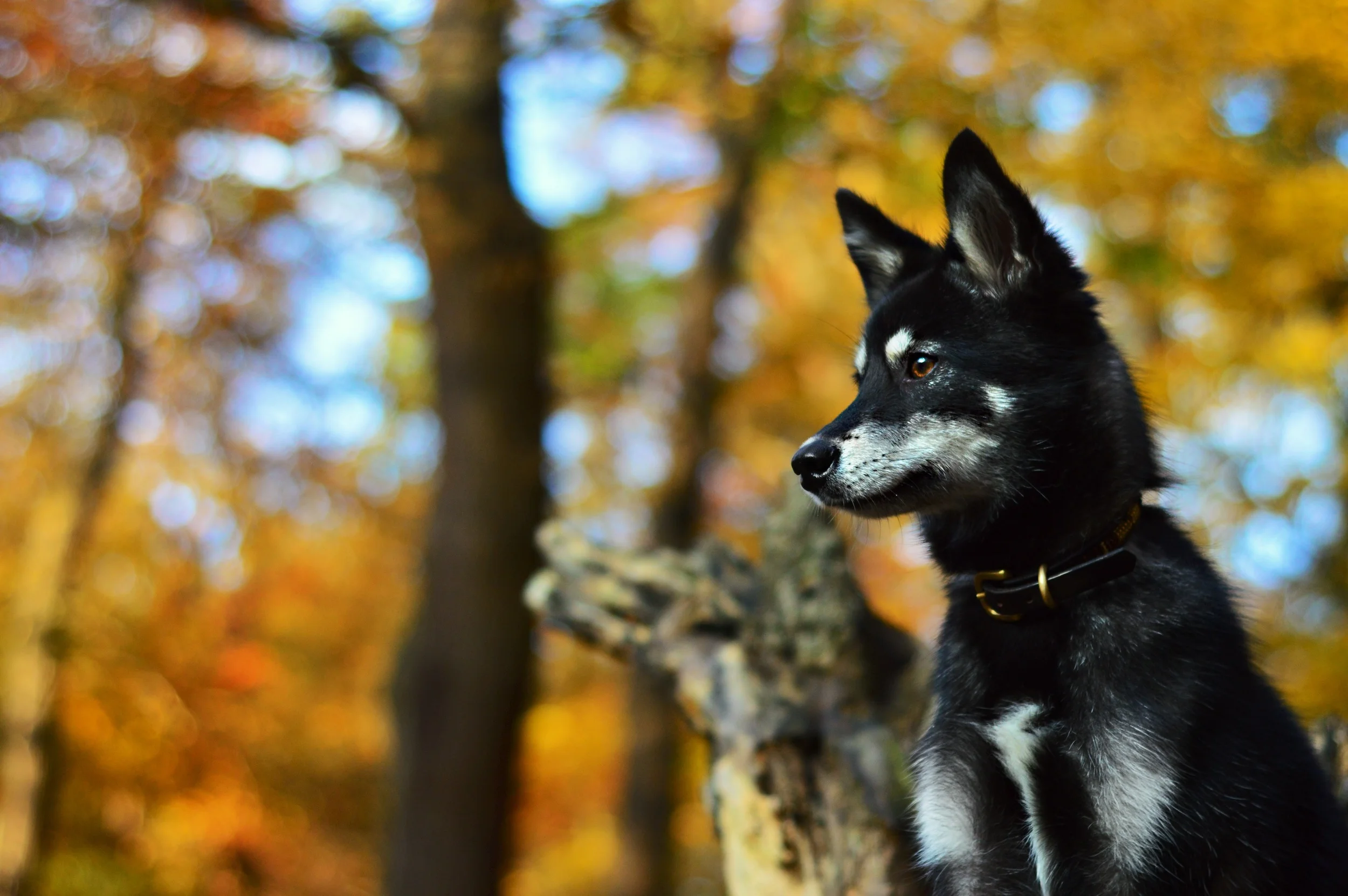Many people come to me to asking for help when it comes to finding the right dog for them, which is fantastic and why I set up the Canine Needs Puppy Match service in the first place.
Canine Needs Puppy Match - To guide people away from making the common mistakes when adding a dog to their life, which more often than not, leads to the dog ending up in rehoming centres, feeling lost and confused.
However, I would like to address the Poodle cross craze. A growing number of people, and by now it really is about 1 in 3 clients, contact me asking for help finding them find a Cockapoo/Maltipoo/Labradoodle/udon noodle doodle etc. I would like to present here the common problems I see with this craze in my everyday work life as an urban dog trainer and behaviourist.
Man creates Frankendoodle
Firstly, let's look briefly at the history of how all of this began. Mr. Wally Conron of Australia worked for the Royal Guide Dog Association. A blind lady needed a guide dog but her husband was allergic to dogs. Mr. Conron took on the task and set about attempting to train the Standard Poodle, for the task. 33 dogs and 3 years later, he was running out of time. In desperation, Mr. Conron crossed a Standard Poodle with his best female Labrador and 3 pups were born. After sending hair and saliva samples of the 3 pups to the husband, only one of the litter was non allergenic. However, Mr. Conron had trouble finding guide dog foster homes for the hybrid puppies, even with a long list of available foster homes, people only wanted to foster purebred dogs. So Mr. Conron asked the PR team to go to the press and tell them a new dog had been created called the Labradoodle, well, then the phone didn't stop ringing.
When asked if Mr. Conron is proud of creating the Labradoodle he says “No! Not in the slightest” when interviewed, he goes on to say “All these backyard breeders have jumped on the bandwagon, and they're crossing any kind of dog with a poodle. They're selling them for more than a purebred is worth and they're not going into the backgrounds of the parents of the dogs. There are so many Poodle crosses having fits, problems with their eyes, hips and elbows and a lot have epilepsy. I opened a Pandora's box, that's what I did. I released a Frankenstein. So many people are just breeding for the money. So many of these dogs have physical problems, and a lot of them are just crazy.”
The name game
Mr. Conron's PR gimmick took off all over the word. The cockapoos had already come about by accident in America in the 50's though had little popularity. But all of a sudden there were goldendoodles, shihpoos, schnoodles, maltipoos and anything else you could think of. The label 'designer dog' was added to make them sound more compelling and raise the price tag further. You can almost guarantee that anyone using these made up marketing names for their litter of puppies is an irresponsible breeder and solely breeding dogs for the money.
Puppy Farming (very briefly)
Due to the high demand of these 'designer poodle crosses' coupled with their high price tag, these dogs are most commonly produced in puppy farm like environments (commercially produced with little or no care for welfare of pups or parents). Some are then sold on to 'dealers' who pose as families in a home environment, usually making excuses as to why the mother cannot be seen with the puppies and saying everything they think you want to hear. There are worse cases of these dealers or farmers keeping puppies alive but near death so as when potential buyers visit they have to buy ('rescue') the whole litter because they couldn't possibly bear to leave them there. The sad fact is, that this is a technique they use to make the money, as soon as those puppies are gone they are quickly replaced with more sick puppies and all the well-meaning buyer did was fund the cruelty. I guess you could say its similar to the child beggars in India that are made disabled to earn more money from the tourists.
Poodle history
The Standard Poodle originated in Germany as a hunting retriever (often ducks) in marshes, swamps and lakes. This 'rough, tough' water retrieving breed was known as far back as 1665 for their intelligence, skill and daring, this coupled with their trainability, led to them becoming stars of the circus. The smaller Poodles are known for their playfulness, self-confidence and protective nature. The Kennel Club advises an hour a day is enough exercise for this breed. The Poodle is ranked the second most intelligent dog out of all the dog breeds, a high amount of mental activity will be required.
Now here's what the above paragraph actually means. The Poodle is a swamp dog. The irony here is that many people think a poodle cross is a good match for them because they are known to shed less hair, in theory making them ideal for lovely, clean urban households. In fact the opposite is true. Even for allergy sufferers, crossing any breed of dog with a poodle doesn't necessarily make it hypoallergenic because there is no consistency in crossbred litters.
With every dog breed it is crucial that you are able to satisfy their genetic instincts. For a Poodle this means that you must provide your dog with access to a swamp-like environment, they love mud, muddy puddles, water, swimming and generally getting very dirty. Their coats are usually unnaturally curly so mud doesn't fall off nor can it be wiped off with a towel for example, most poodle type owners have car travel crates, hosepipes in the garden and a side gate. To satisfy the retrieving instinct of the Poodle, you must play fetch with them, ideally in their muddy, swamp environment.
The intelligence of a Poodle is very high, however for most modern urban families this can work more as a curse than a blessing. They don't cope well with being left alone or left out of activities, which for many families is impractical. This intelligence doesn't allow for making many mistakes. If the Poodle learns a trick in say 2 repititions that also means if you make a mistake twice, your dog has learned that pattern of behaviour too, causing extreme behaviour problems very quickly. This is often why I see such extreme separation problems in Poodle based dogs.
In short, the poodle gene is not a match for the houseproud or families whose members are at work and school all day. They would, however be a great match for dog enthusiasts, those who would have lots and lots of time to spend with their Poodle type in the muddy forests playing games.
Poodle crossed with working dogs
The Standard Poodle is a working retriever breed, the miniature and toy variations are bred to be companion versions however still possess many of the working traits. When you cross this type of dog with other working dogs such as commonly, the Spaniel, Labrador or Golden Retriever, you do not get a companion animal. If all working instincts are satisfied almost daily then you may have a working dog that also excels as a companion. Many people think these dogs look cute or teddybear like which further fuels the contradiction. The Labradoodle for example is the dog type that is most commonly seen in court cases in the UK due to their needs not being met properly, lack of training and general out of control behaviour that is commonly seen within the first two years of the dogs life.
Poodle crossed with companion dogs
There are many breeds of dog that have been bred as a companion dog for humans. The ancient Italian Greyhound from Pompeii for example is a small companion dog very much suited for modern urban lifestyles as that is what it was bred for all that time ago. Other ancient breeds such as the Maltese (350BC) and the Shih Tzu (800BC) have been developed to perfectly suit the role of a companion dog and already shed very little and are often suitable for allergy sufferers. Ask yourself then, why would you cross it with a Poodle? What benefits does that bring? By now you should be aware of the pitfalls, but to summarise just in case:
The Poodle is a swamp dog that requires regular access to muddy water.
The Poodle is ranked the second most intelligent dog breed and so needs almost constant attention or else behaviour problems develop.
The Poodle crosses are almost always produced in puppy farms or just for the money.
Puppy farmed puppies usually have many and serious health and behaviour problems.
With cross breeding there is no consistency so you don't know what your getting.
With cross breeding there is often little effort put into testing the parents health and temperament prior to breeding.
If you are set on this type of dog, please wait for one to arrive at an adoption centre near you.
For more information please get in touch or look out for future blog posts on topics such as puppy farming and what's wrong with buying dogs from the internet, purebred vs crossbred and a new initiative that Canine Needs will be rolling out across the UK.




